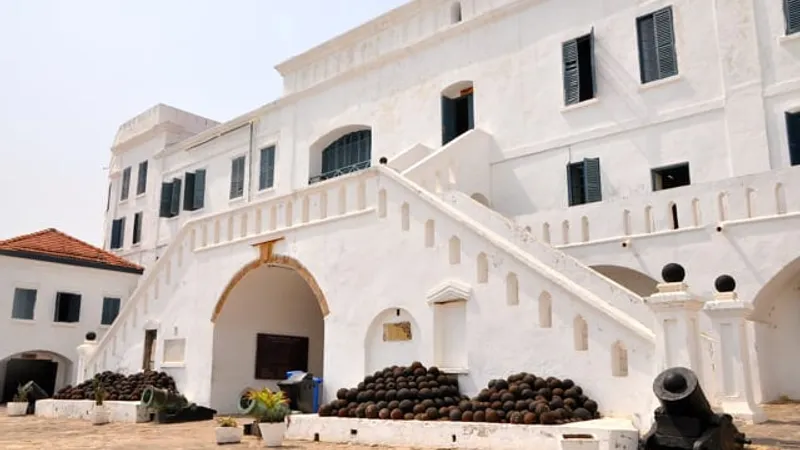Cape Coast, Ghana — The salt-worn walls of Cape Coast Castle, a 17th-century fortress that’s both a UNESCO World Heritage Site and a haunting reminder of the transatlantic slave trade, are about to see a major transformation. On April 16, Ghana’s government greenlit a £38 million project to revamp the landmark, aiming to preserve its crumbling structure, boost tourism, and deepen its role as a global center for education about the slave trade’s grim legacy.
The castle, perched on the Gulf of Guinea’s edge, has stood for nearly 400 years, its whitewashed walls and cannon-lined ramparts bearing witness to centuries of history. Built by Swedish traders in 1653, it later became a key British stronghold, where thousands of enslaved Africans were held in dungeons before being shipped across the Atlantic. Today, it’s a pilgrimage site for visitors worldwide, from school groups to descendants of the diaspora. But time hasn’t been kind. Cracks snake through its stonework, and relentless waves have eroded its foundations. Parts of the site are roped off, too risky for tourists to wander.
The new project, funded partly by Ghana’s government and international partners, will tackle these issues head-on. Plans include reinforcing the castle’s seaward walls, restoring its colonial-era architecture, and upgrading visitor facilities. A state-of-the-art museum will expand exhibits on the slave trade, with new artifacts and interactive displays. Workers will also install climate-controlled storage for delicate documents, like 18th-century ledgers that logged human lives as cargo. The goal? Make the castle a world-class destination while keeping its somber history front and center.
Local officials say the overhaul will create jobs, too. Construction is expected to employ hundreds in Cape Coast, where fishing and tourism drive the economy. A training program will prepare young Ghanaians to work as guides, curators, and preservationists. The project’s timeline stretches to 2028, with the first phase—structural repairs—slated to start in November.
Not everything’s set in stone yet. Community leaders in Cape Coast have pushed for input on how the site’s story is told, stressing that the castle’s narrative must honor the voices of those who suffered there. Meetings with traditional chiefs and diaspora groups are planned for May to hash out details.
The announcement has already sparked buzz. Tour operators report a spike in inquiries, and Ghana’s tourism ministry predicts the revamp could double the castle’s annual visitors, currently around 100,000. For a country betting big on heritage tourism, the stakes are high.
Cape Coast Castle’s makeover is more than a facelift—it’s a bid to safeguard a piece of history that still echoes across continents. By 2028, if all goes to plan, this weathered fortress will stand stronger, ready to tell its story to a new generation.
The project costs £38 million, with funding from Ghana’s government and international donors. Construction begins in November 2025 and will finish by 2028. The castle was built in 1653 and designated a UNESCO World Heritage Site in 1979. It currently draws 100,000 visitors annually.

